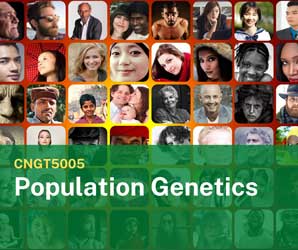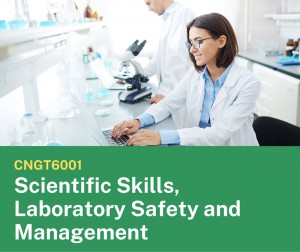Overall Curriculum


Overall Curriculum
To qualify for conferment of MSc in Medical Genetics, 30 units must be completed from the programme’s core courses over two years in part-time mode.
 Year 1
Year 1
CNGT5001 Clinical Molecular Genetics

The course covers [1] understanding of DNA structure, human genome and application of various molecular techniques in current clinical molecular laboratory including PCR technique, Southern blot analysis, targeted mutation analysis, gene scanning, gene sequencing, SNP array analysis, next generation sequencing, identity testing; [2] developing preanalytic and postanalytic skills including interpretation of genetic test results, report writing and communication of result to clinicians.
CNGT5002 Clinical Biochemical Genetics

Understanding [1] genetic basis of inborn errors of metabolism; [2] the acute presentation and initial management of inborn errors of metabolism; [3] the interpretation of abnormal screening test results; [4] how to apply the principles of effective communication in taking care of patients with or at-risk of specific genetic conditions.
CNGT5003 Clinical Genetics

Clinical genetics deals with direct clinical care of patients with genetic disease, including diagnosis, management and counselling as well as development of a genomic approach to human diseases in clinical setting which requires the application of all of the basic principles of medical genetics taught in this course.
CNGT5004 Clinical Cytogenetics

The course covers the understanding of DNA and its architecture, cell division and the use of various techniques to examine these structures, including chromosome banding, FISH and aCGH. It also covers the application of these techniques for the detection of chromosomal abnormalities, developing pre-analytic and post-analytic skills in test results interpretation, report writing and communication of result to clinicians.
CNGT5005 Population Genetics

The course covers [1] risk assessment of a given genetic condition; [2] implications of population screening for carriers of disease causing genes; [3] gene mapping and identification of genes responsible for the predisposition to disease like cancers and autistic spectrum disorder; [4] interpretation of DNA matching for paternity testing or forensic purposes; [5] study of world-wide genetic variation among human populations.
CNGT5006 Genome Informatics

The course introduces the basic concepts, methods and tools used in bioinformatics including bioinformatics databases, sequence alignment and phylogeny, protein structure prediction, protein-protein interaction, molecular dynamics and other essential data mining algorithms with the aim of helping students to use bioinformatics tools and data to answer biological questions and to solve clinical problems.
CNGT5007 Genetic Counselling

Genetic counselling is a communication process which involves [1] conveying medical facts including diagnosis, course of the disorder and available treatment; [2] understanding the pattern of inheritance and the risk of carrying the gene in specific relatives; [3] understanding the alternatives for dealing with the risk; [4] choosing an appropriate course of action by taking into account their risk, family goals, ethical and religious standard, and in accordance with their decision; [5] making the best possible adjustment to the disorder of the affected family member and/or the risk of recurrence of the disorder.
 Year 2
Year 2
CNGT6001 Scientific Skills, Lab Safety and Management

CNGT6002 Prenatal and Paediatrics Genetics

The course covers prenatal dysmorphology and genetic syndromes. It will also cover the principles of prenatal screening and diagnosis with emphasis on screening for Down syndrome and other fetal aneuploidies.
CNGT6003 Adult and Cancer Genetics

The course covers the diagnosis, counseling and management of late onset genetic diseases, common hereditary cancers and cancer predisposition syndromes. It also includes the quantitative methods in cancer risk assessment, laboratory methods of cancer genetic testing, genetic testing in the management of patients with cancer, reproductive counseling for cancer patients and families.
CNGT6004 Advanced Clinical Genetics

The course teaches recognizable patterns of human malformation using a combined approach encompassing dysmorphology, formulation of diagnosis, advanced laboratory testing, management and therapy.
CNGT6005 Frontiers in Genomic Medicine and Laboratory Technologies

The course introduces the latest concepts, methods and tools used in genomic medicine. Special emphasis will be put on the application and interpretation of microarray and next-generation sequencing data.
CNGT6006 Ethics and Law

The course deals with psychological, ethical and legal issues in prenatal genetic testing, genetic testing for presymptomatic individual, cancer genetic testing and reproductive genetic testing, and problem of confidentiality.
CNGT6007 Research Project

Research topics related to genomic and clinical genetics will be provided by the principal investigators from the Chinese University of Hong Kong, Baylor College of Medicine, Harvard Medical School and Peking Union Medical College. The research project will either be a laboratory-based or clinical data-based investigation. Students are required to write up the result in a dissertation.

